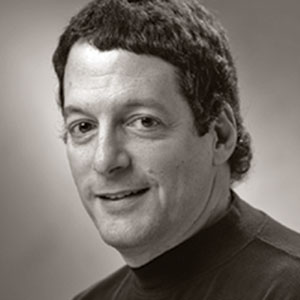The Door to David Barnard's office was open. I knocked anyway, and he looked up and motioned me in while talking on the telephone. I sat down on the office couch, and as soon as he ended his conversation, he bounded my way and gave me a hearty handshake and hello. The year was 2000, and I was a reporter scheduled to interview him about a book he co-authored: Crossing Over: Narratives of Palliative Care (Oxford University Press, 2000), which dealt with holistic, end-of-life care for the terminally ill.

As with all of my interviews, my intent was to find out what epiphany occurred in Barnard's life that, in his case, led him to become a renowned expert in palliative care. Sounds easy, right? Anyone who has ever conducted an interview for a story knows that isn't the case. There is almost always the typical, "Oh, I guess I always knew" response. Only after that superfluous statement is out of the way does an interview really begin. So, with that in mind, I asked my subject the fateful question:
"Dr. Barnard, what was it that made you pursue a career in palliative care?"
For once, I didn't have to ask twice.
He told me he earned his degree from the University of Chicago in 1970, which was during the height of The Vietnam War. He had two (legal) choices: become a conscientious objector or go to war. He chose not to fight, which meant he had to accept an assigned alternative service. The humanities honors student was transformed into an orderly for a New England hospital where he would go room-to-room opening blinds, fluffing pillows, and cleaning up what's best not described.
His less-than-glamorous rounds included an elderly, bedridden woman with no friends or family. She hadn't spoken a word or made eye contact since she had been recently admitted for severe bedsores, dehydration, and a host of life-threatening ailments. Each and every morning, Barnard would go about his chores in her room while asking her how she felt or telling her about the weather outside or perhaps the day's news. Of course, he never received any kind of response, either verbally or through body gestures.
One day, just like all the others, he had finished his one-way conversation and was about to leave when he heard this soft whisper: "Thank you." Even more incredible, within a few weeks, the patient was talking freely, reminiscing about her days as a student at Wellesley College in the early 1900s. The power of kindness overwhelmed Barnard and changed his life forever; he would embark on a career of improving the quality of life for the gravely ill.
I had my story.
Nancy Dolan-Brady (A'76), the guest columnist for this issue's Last Word department, tells a story that has an uncanny resemblance to what Barnard experienced. A simple good deed when a homeless person approached her turned into something much more. Don't feel rushed to turn to page 48, though. There are several "epiphany" moments throughout this issue, thanks to the magazine's writers (of which more than three-quarters are university alumni or students). They've become very adept at getting beyond, "Oh, I guess I always knew.
-Robert Mendelson
Executive Editor



